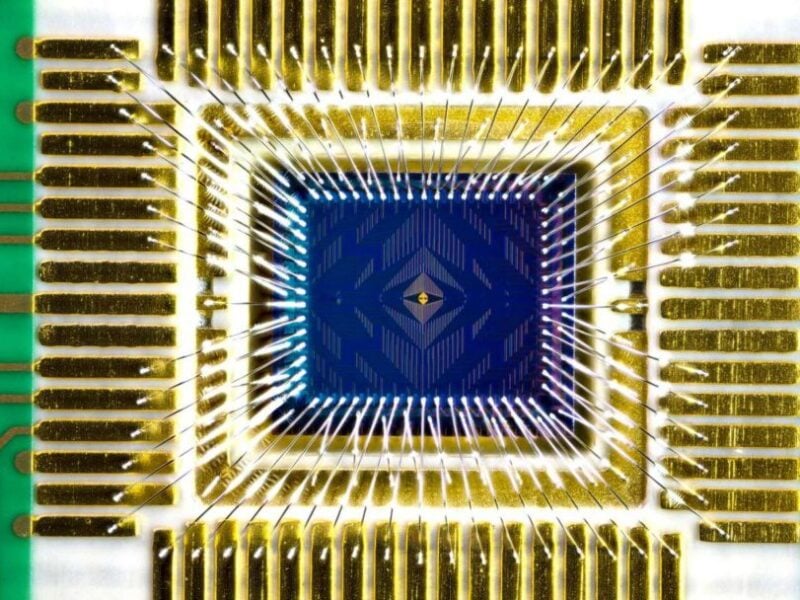
Intel shows mass produced 12qbit CMOS quantum chip
 Cette publication existe aussi en Français
Cette publication existe aussi en Français
Intel has released a quantum chip with 12 qbits built on a mainstream CMOS process technology.
The Tunnel Falls quantum chip is built from 12 quantum dots, or single electron transistors, that can be configured with 4 to 12 spin-based quantum bits. The aim is for research labs to use the chip with different topologies to build larger systems, particularly to test out qubit error correction schemes.
Intel is also working on its next-generation quantum chip based on Tunnel Falls, presumably with more qubits, which is expected to be released in 2024.
Intel is working with the Laboratory for Physical Sciences (LPS) at the University of Maryland, College Park’s Qubit Collaboratory (LQC), a national-level Quantum Information Sciences (QIS) Research Centre, as part of the as part of the Qubits for Computing Foundry (QCF) program through the U.S. Army Research Office.
A key advance is that the chip is made on a 300mm CMOS wafer using extreme UV (EUV) lithography and saw a yield of 95%. A single 300mm wafer can produce 24,000 of the Tunnel Falls chips, which measure 50 x 50nm.
Intel had to develop a cryogenic probing tool to test the chips at temperatures approaching 0K. This showed voltage uniformity similar to a CMOS logic process.
- £75m for UK quantum computer, sensor prototypes
- Single-atom transistor ‘recipe’ simplifies atomic-scale
“Tunnel Falls is Intel’s most advanced silicon spin qubit chip to date and draws upon the company’s decades of transistor design and manufacturing expertise. The release of the new chip is the next step in Intel’s long-term strategy to build a full-stack commercial quantum computing system. While there are still fundamental questions and challenges that must be solved along the path to a fault-tolerant quantum computer, the academic community can now explore this technology and accelerate research development,” said Jim Clarke, director of Quantum Hardware at Intel.
The first quantum labs to participate in the program include LPS, Sandia National Laboratories, the University of Rochester, and the University of Wisconsin-Madison. LQC will work alongside Intel to make Tunnel Falls available to additional universities and research labs.
“Sandia National Laboratories is excited to be a recipient of the Tunnel Falls chip. The device is a flexible platform enabling quantum researchers at Sandia to directly compare different qubit encodings and develop new qubit operation modes, which was not possible for us previously,” said Dr Dwight Luhman, distinguished member of Technical Staff at Sandia National Laboratories,
“This level of sophistication allows us to innovate novel quantum operations and algorithms in the multi-qubit regime and accelerate our learning rate in silicon-based quantum systems. The anticipated reliability of Tunnel Falls will also allow Sandia to rapidly onboard and train new staff working in silicon qubit technologies.“
Intel plans to integrate the Tunnel Falls chip into its full quantum stack with the Intel Quantum Software Development Kit (SDK) and work with additional research institutions globally to build the quantum ecosystem for its silicon quantum dot technology.
 If you enjoyed this article, you will like the following ones: don't miss them by subscribing to :
eeNews on Google News
If you enjoyed this article, you will like the following ones: don't miss them by subscribing to :
eeNews on Google News




